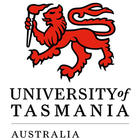Master of Maritime Engineering (Professional)
- Posted by University of Tasmania (UTAS)
- Home
- Courses
- University of Tasmania (UTAS)
- Master of Maritime Engineering (Professional)
Master of Maritime Engineering (Professional)
Progress your career into specialist areas of maritime engineering including naval architecture, fluid mechanics and marine and offshore systems. Your studies will combine learning that is specific to the design and construct of maritime vessels and systems with advanced studies in management, project planning and research. You will graduate with…
Categories
COURSE DESCRIPTION
Progress your career into specialist areas of maritime engineering including naval architecture, fluid mechanics and marine and offshore systems. Your studies will combine learning that is specific to the design and construct of maritime vessels and systems with advanced studies in management, project planning and research. You will graduate with an understanding of complex marine systems and the ability to lead engineering projects in the maritime industry. This course is accredited by Engineers Australia.
This program is aimed at engineering professionals already in the workforce, but with limited exposure to the maritime engineering sector. Our graduates secure employment in advanced technical and management roles in maritime engineering. All programs lead to greater employment and higher degree study opportunities through industry-relevant research projects.
Our specialist coursework is designed by experienced maritime engineers and researchers. Delivered through a combination of interactive online study resources and on-campus study, this course provides a flexible learning mode for students who wish to continue working while studying.
If you are a professional engineer with a 4-year bachelor’s degree in any engineering discipline, this program will change the course of your career.
Learning Outcomes:
1 Design and formulate solutions to complex technical problems in both the maritime and wider engineering fields using systematic analysis and processes.
2 Manage complex maritime projects using systematic approaches, soft skills and teamwork in professional and lay domains.
3 Create innovative solutions for maritime and wider engineering fields by critically researching current developments, advanced technologies and emerging issues.
4 Practice high-level personal autonomy and accountability considering ethical and sustainable engineering practices in accordance with Engineers Australia standards.
Course structure: The Master of Maritime Engineering (Professional) consists of 16 units totaling 200 credits points.
REQUIREMENTS
A full four year Australian Bachelor of Engineering degree, or equivalent.
Most of our postgraduate programs have the following English language requirements.
IELTS (Academic) – 6.0 (no individual band less than 6.0)
TOEFL (iBT) – 72 (no skill below: Reading 16; Listening 16; Speaking 18; Writing 22)
PTE Academic 50 with no score lower than 50.
EDUCATIONAL INSTITUTION
The University of Tasmania was officially founded on 1st January 1890 and is located at Sandy Bay, Tasmania. In addition to the main campus at Sandy Bay, it also operates out of the Newnham Campus and the Cradle Coast Campus. The most popular courses offered are the environmental studies that include wilderness management, marine sciences and indigenous studies in Tasmanian literature. Other unconventional courses include agriculture development, studies on the community and population and ocean study programs. The university also comprises of a Music Conservatorium, Art school and a School of Clinical studies.
The University of Tasmania was officially founded on 1st January 1890 and is located at Sandy Bay, Tasmania. In addition to the main campus at Sandy Bay, it also operates out of the Newnham Campus and the Cradle Coast Campus. The most popular courses offered are the environmental studies that include wilderness management, marine sciences and indigenous studies in Tasmanian literature. Other unconventional courses include agriculture development, studies on the community and population and ocean study programs. The university also comprises of a Music Conservatorium, Art school and a School of Clinical studies.




